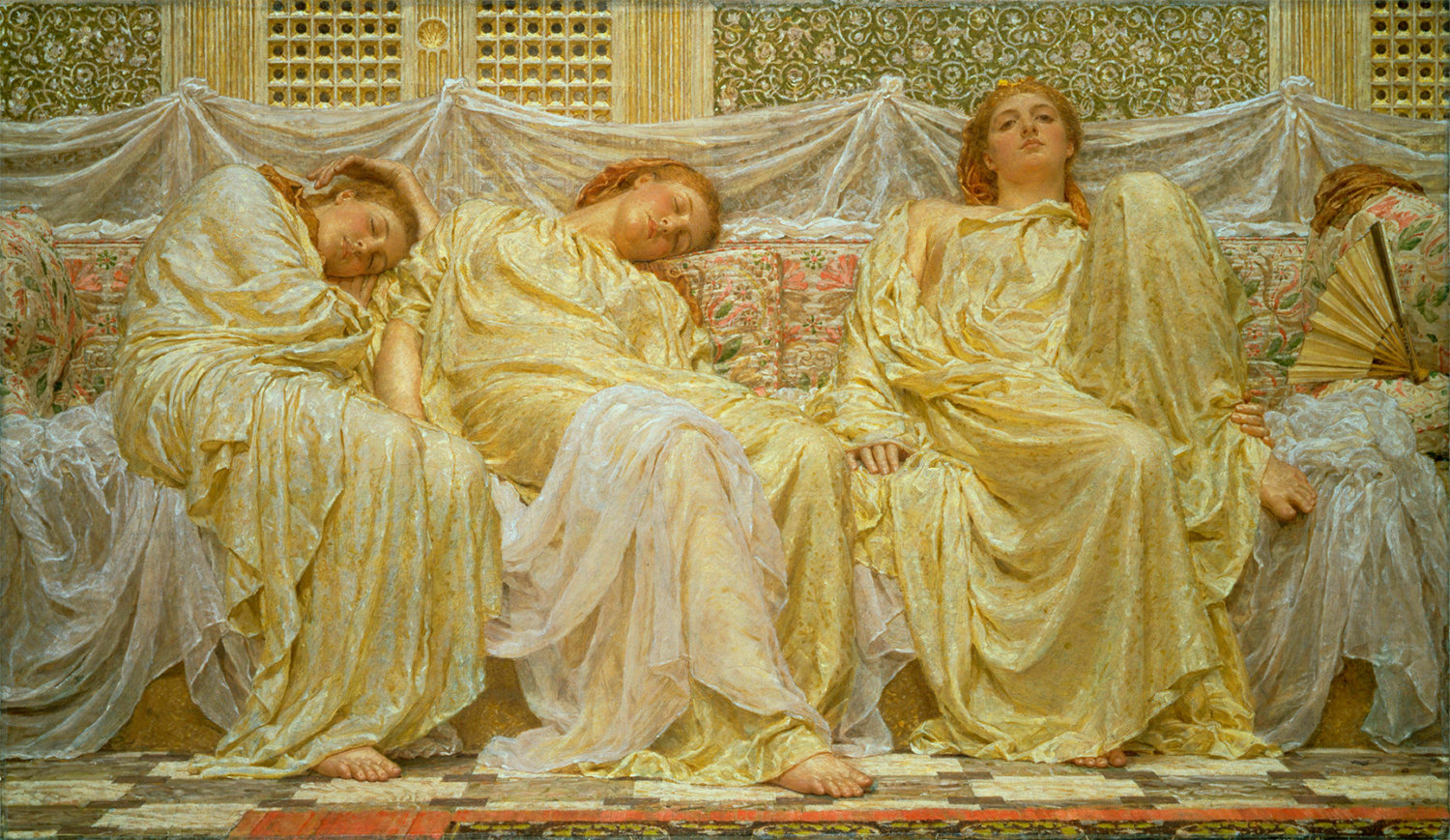Imagine that there was a state of being so great, so wonderful, so magnificent, that we straightaway forget about it. Once this has happened – once we have forgotten – then we make sure that we stay in this state of forgetfulness because it because it hurts so much if we remember what we have lost. An echo or two does come back to us every now and again, and echo that is sweet and bitter at the same time. It is sweet because it reminds us of what we have lost, and it is bitter for the same reason.
Suppose that there was a very strange and at the same time very virulent disease, a disease that spreads like wildfire in a dry grassland, and infects everyone it touches. This disease is as we have said very strange and the way that it infects us is that we straightaway ‘put on an act’ – we straightaway pretend to be someone we aren’t and then – just as quickly – we forget that we are only pretending and we take the act to be totally real.
This is like the warning that parents used to give their children about not pulling horrible faces at their brothers and sisters in case the wind suddenly changes direction and the horrible face will get stuck fast, never to be removed. This same principle applies with this imaginary contagion – on some kind of an unaccountable whim we ‘pull a face,’ we ‘put on an act,’ we pretend to be someone we aren’t, and then we are stuck with it. Only in this case ‘being stuck with it’ means ‘believing in your own act’ and so straightaway we forget who we really are. We forget our previous station. But this disease is so very contagious that in no time at all everyone has forgotten who they are and ‘forgetfulness’ is the norm.
So in the first case where we came from is forgotten about, and in the second case who we are is forgotten about. In both cases the same principle applies, which is to say, the partial memory that comes back from time to time is so painful that we don’t want to dwell on it. The pain of the loss is too hard to bear, it is too much for us to endure and so rather than allow ourselves to be aware – in some limited way at least – of what has befallen us, we deny it – we make the wall of forgetfulness complete. A fully-fledged conspiracy, a system of deception, is put in place to make sure we don’t remember it and anyone who does somehow remember, and is foolish enough to talk about it, will either get laughed at or ignored, and will be generally assumed to be soft in the head.
Once the ‘curtain of forgetfulness’ has come down everything becomes rather humourless and compulsive. The atmosphere changes – the world seems like a greyer and more serious sort of place and the business of living becomes grimmer and less fun than it was. There is a heavy feel to everything – a sense of massive inertia, a bit like a block of stone that is sitting somehow on top of you. One curious thing that generally follows on from the ‘compulsory forgetting’ is that everyone starts to become very busy, very driven. We start to use the language of compulsion more and more in our speech – we keep saying ‘have to’ and ‘must do’ and ‘should do’ and ‘ought to’.
We are always rushing here and rushing there, doing this and doing that, and then whenever we have done whatever it is that we were supposed to do, why – then we have a whole new list of things to do. And so it goes on until we are too old and too tired to run around any more keeping ourselves busy the whole time, and then we do cross-word puzzles and watch TV.
The general idea is that we have to have goals and that goals are very important. If you haven’t got any goals, or at least one goal, then there must be something wrong with you. Perhaps you are lazy, or perhaps you are depressed. Busy-ness and goals are what it is all about – as long as we are busy no one will really take any notice of us. We will be accepted and approved of because being busy is the most important thing. Being busy is the good thing. Even if we aren’t succeeding particularly well at least we are trying, and we are told not to worry – that we will get there in the end. Our friends will tell us not to give up hope because sooner or later our boat will come in. One day our luck will change and then we will be winners.
These goals that we are forever chasing and forever distracting ourselves with are very curious things. They are not especially important in themselves – it’s just important to have them. So you could say that the reason our goals are so important to us is because they help us forget how sad we are underneath it all, because they help us to distract ourselves from the pain of our loss – the loss we don’t know about.
Instead of focussing on goals, which is an external sort of thing, we could instead look at the mental state that goes with chasing goals, which is the mental state of hunger, greed, and general neediness. We don’t like to focus on this painful needy feeling deep inside us, naturally enough, and so we put all of our attention on our goals, because we think that if we achieve those goals, then this will put an end to that awful empty feeling inside us.
Instead of seeing the pain of this inner deficiency we look outwards at the glittering, seductive goals we are chasing after. We fix our attention on the objects of our desire, and say how wonderful it would be to attain them, to own them forever. The more my inner pain hurts me, therefore, the more attractive the objects of my desire become. They shine out at me as ‘reversed representations’ of my inner deficit. They represent the solution to my problems, the answer to all that troubles me, the balm for the ache that lies within. Only all of my attention is put on these objects and none at all on the pain drives me to chase them.
Another way of expressing this situation is therefore to say that the ache of loss inside me is ignored, and by being ignored it gets transformed into an outwardly-directed motivation. This motivation or drive is what lies behind my busy-ness, and when everyone sees how determined and how busy I am in the pursuit of my goals they think this is wonderful and tell me that I am really going to get somewhere as a result of my drive and my determination – even though this drive is actually taking me further and further away out of myself.
The goals themselves are of course no more than flimsy make-shift tokens which are not designed to be looked at too closely. They are quite worthless in themselves and are put to one side and forgotten about just as soon as they have been acquired. They are only there to facilitate the game, and it is the playing of the game that is the really important thing; the chase is better than the catch, as everyone knows because what we are really chasing is a different thing to what we actually end up caching.
But we shouldn’t be too dismissive or too disparaging about these tokens, these superficial goals, these pretty but insubstantial images that we keep chasing after. After all, they stand for something that we – in our present state of mind – have no capacity to understand. What they really stand for, even though we don’t understand this, is the state of being we once knew, and have now been forced to forget about, to deny on a daily basis.
And the way that we naively think possessing these tokens, these images will make us feel, even though it never does, is the way we used to feel when we were truly ourselves, when we partook in a degree of wonder and freedom and expansiveness that we are now quite incapable of comprehending. We can’t remember that, and we don’t even know that we have forgotten it, but deep down we know, and this is what we are really searching for when we chase so determinedly after our goals. Our hopes and dreams are empty, banal, pitifully ridiculous, but at the same time they stand for everything that we have had to leave behind when we entered into this grim vale of forgetfulness. They’re all we’ve got, and so we have to make do with them. These tokens have the job of ‘standing for reality’ for us; we actually have to ‘make a reality out of them’…
All of this is of course only a story, only an ‘imagining’. It’s only a myth. Who knows if it could really be true, or if there could be any value at all in entertaining such a fanciful and far-fetched fable?
Image – peakpx.com






